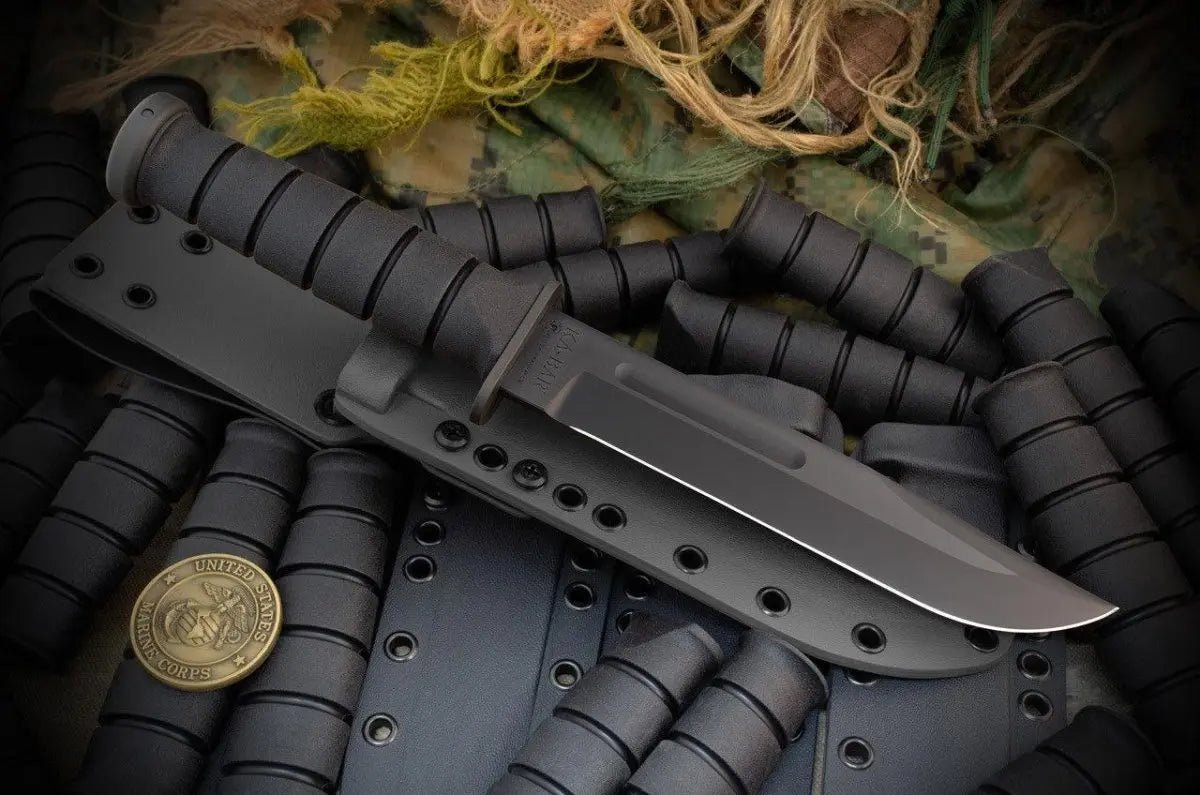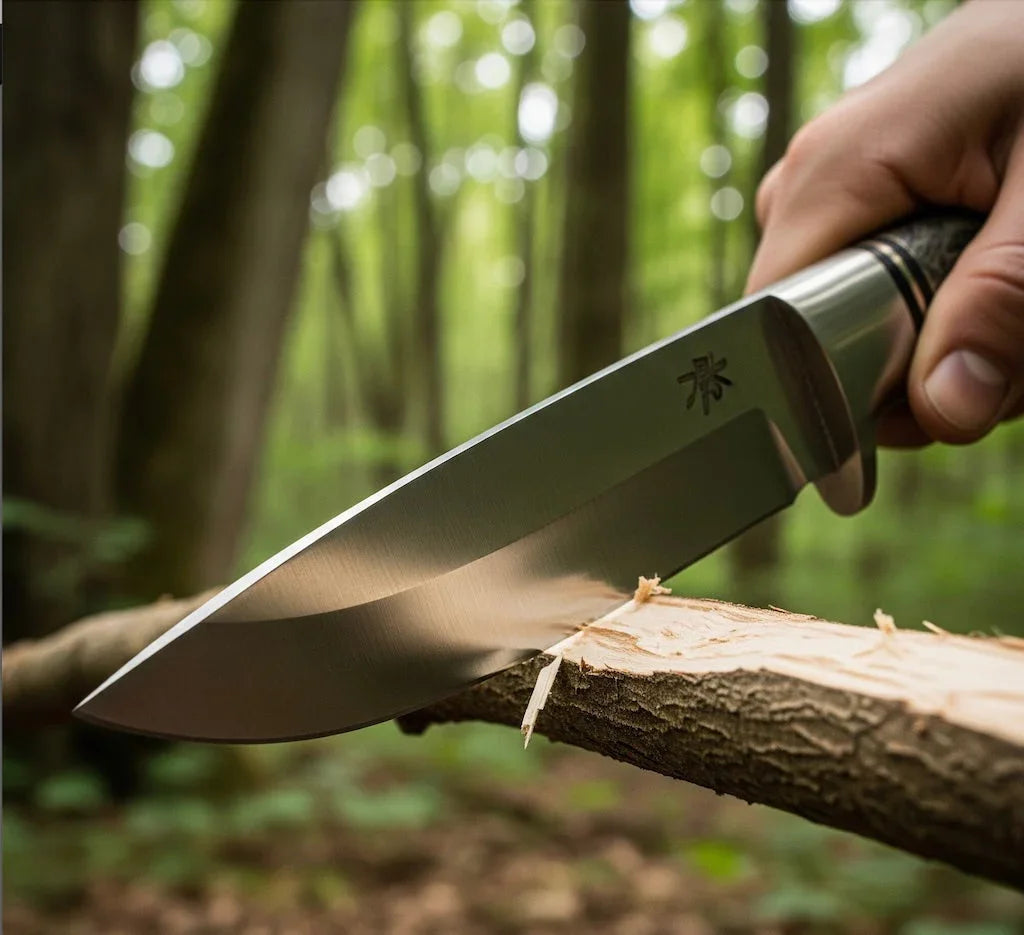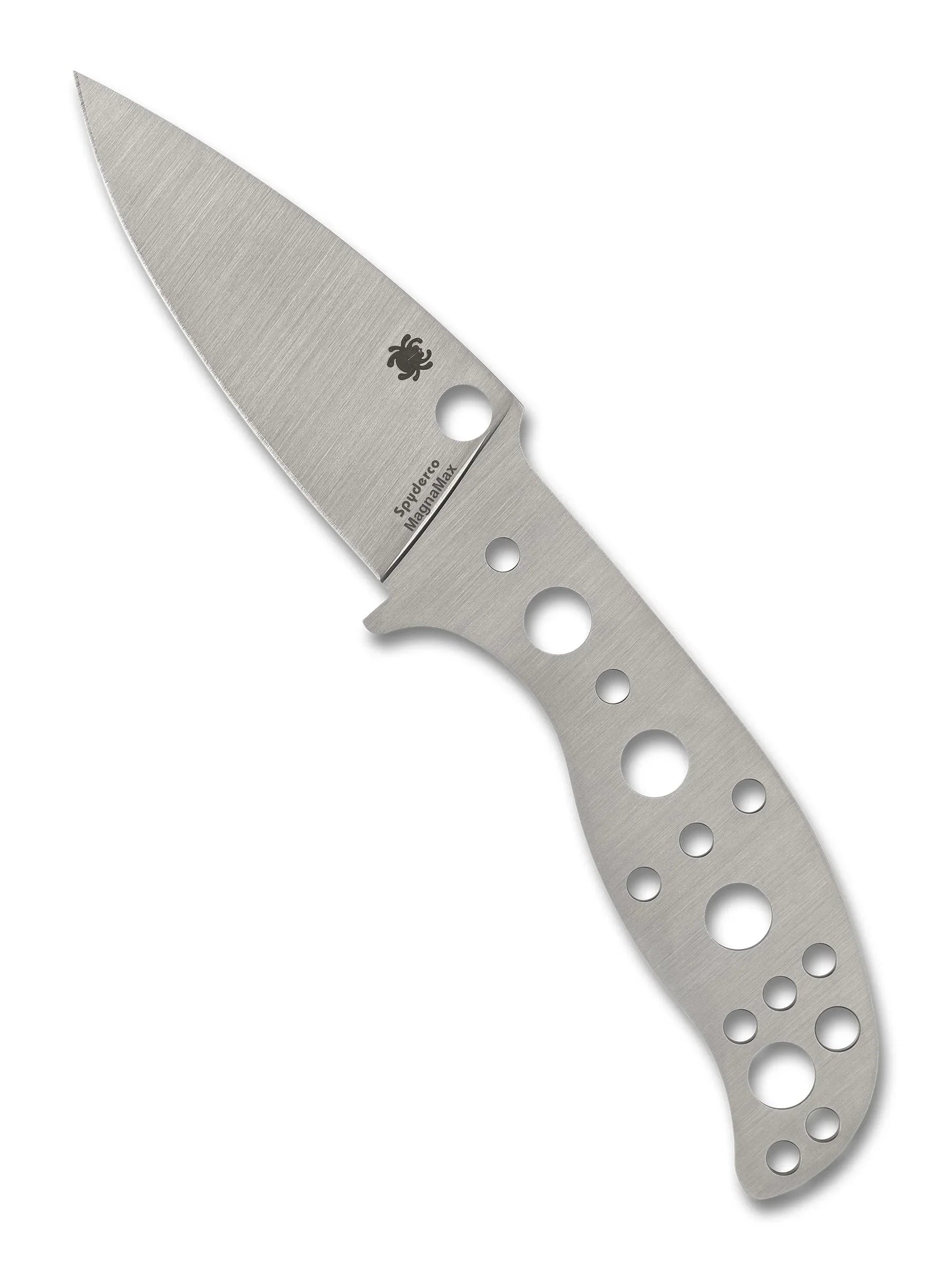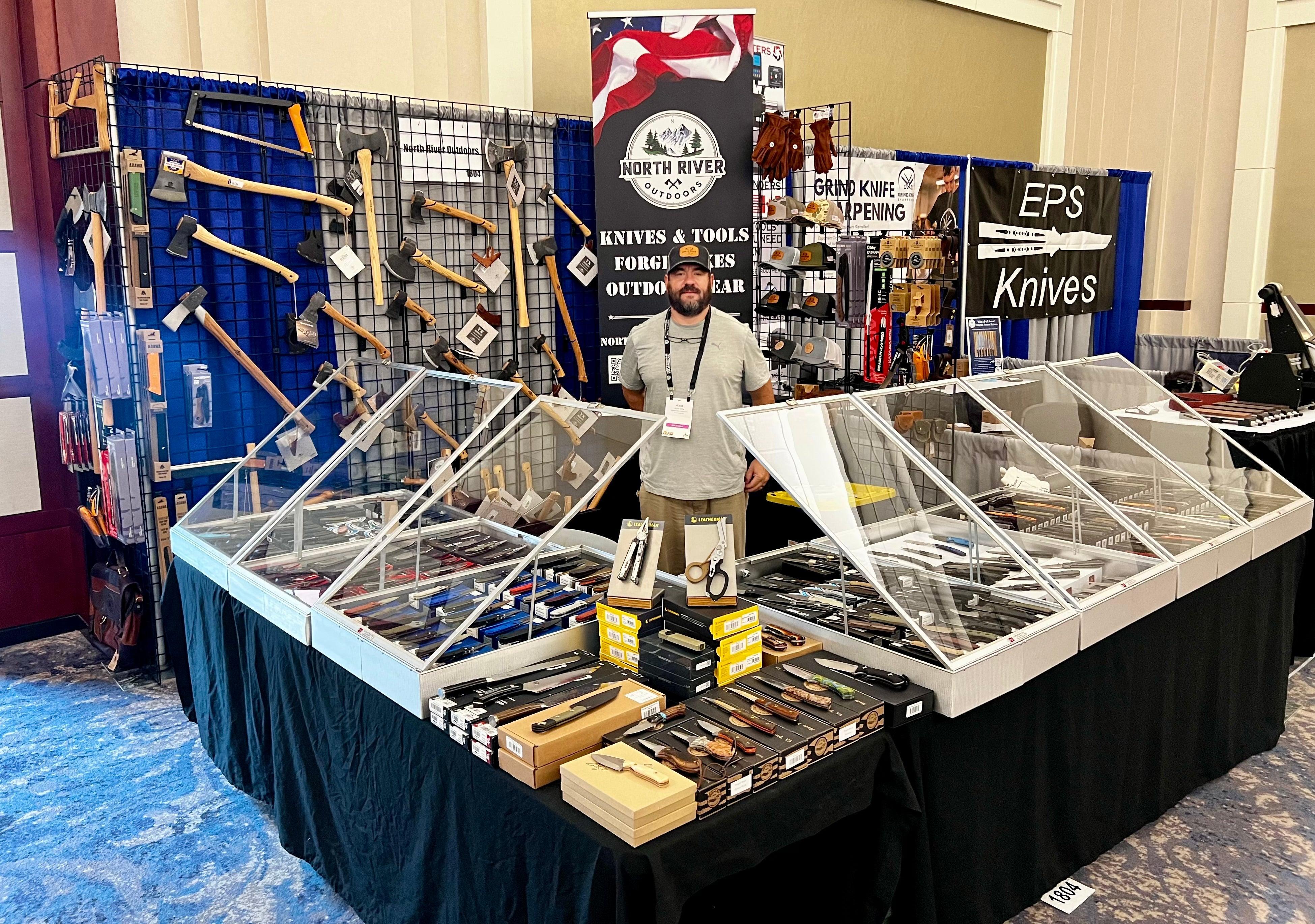Blade smiths and Knife Enthusiasts are always on the lookout for the best possible materials to improve the performance of their tools. Over the years, different steel types have emerged, each with their unique set of properties. Among them, CPM-3V, S35VN and the more recent MagnaCut have proven to be excellent options for knife blades and for the exports that use them. However, for specific tasks such as bushcraft and survival activities, MagnaCut has been making waves for its superior characteristics. This article will delve into the unique properties of these three types of steel and why MagnaCut stands out for fixed blades used in bushcraft and survival tasks.
Comparing Steel Types: CPM-3V, S35VN, and MagnaCut
Before we delve into the specifics, let's first get a general understanding of these steel types:
1. CPM-3V: Known for its toughness and resistance to breaking, CPM-3V is a favorite among those who need a knife that can take a beating. Despite these strengths, it falls short in terms of corrosion resistance and ease of sharpening.
-
CPM-3V is a high toughness, wear-resistant tool steel made by the Crucible Particle Metallurgy process. It is designed to provide maximum resistance to breakage and chipping in a high wear-resistance steel.
-
It offers impact resistance greater than A2, D2, Cru-Wear, or CPM M4, and approaches the level of S7 and other shock resistant grades.
-
CPM-3V is intended to be used at 58/60 HRC in applications where chronic breakage and chipping are encountered in other tool steels, but where the wear properties of a high alloy steel are required.
-
The wear and toughness properties of CPM-3V make it an excellent alternative to shock-resistant steels such as S7 or A9, where they typically wear out too quickly, but where resistance to shock is still needed.

The composition of CPM 3V is as follows:
- Carbon (C): 0.80
- Manganese (Mn): 0.30
- Silicon (Si): 1.00
- Chromium (Cr): 7.50
- Molybdenum (Mo): 1.30
- Vanadium (V): 2.753.
The physical properties of CPM 3V include:
- Density: 0.279 lb/in³ (7750 kg/m³)
- Specific Gravity: 7.75
- Specific Heat: 0.11 Btu/lb/°F
- Modulus of Elasticity: 30 x 10⁶ psi (207GPa)
- Machinability: 50-60% of a 1% carbon steel4.
The heat treating instructions for CPM 3V involve several steps including preheating, austenitizing, quenching, tempering, and annealing. These processes involve different temperatures and times depending on whether you're aiming for maximum wear resistance, balanced wear and toughness, or maximum toughness
2. S35VN: Developed as an improvement over S30V steel, S35VN offers a good balance between hardness, toughness, and edge retention. It also provides an improved level of corrosion resistance. However, when it comes to extreme durability and resistance to chipping, it doesn't quite meet the standards of some bushcraft enthusiasts.
-
CPM S35VN is a high-end stainless steel produced by Crucible Industries, designed for knife-making. It is an improvement on the earlier S30V steel, with added Niobium for enhanced toughness and ease of sharpening.
-
It is known for its great edge retention, corrosion resistance, and high hardness. Typically, S35VN can achieve a hardness of 59-61 on the Rockwell Hardness Scale (HRC).
-
S35VN steel is also more resistant to chipping, which can be a problem with harder steels.
-
It is considered a premium grade knife steel and is often used in high-end and custom-made knives.

The chemical composition of CPM S35VN steel is:
The physical properties of CPM S35VN include:
- Modulus of Elasticity: 30 psi x 10^6 or 207 GPa
- Specific gravity: 7.7
- Density: 0.280 lb/in^3 or 7700 kg/m^3
- Thermal Conductivity at 200°F (95°C): 14 BTU/hr/ft/° or 24.2 W/m°K(95C)
3. MagnaCut: A newcomer to the steel industry, MagnaCut combines the best aspects of various steel types. It provides exceptional toughness, excellent corrosion resistance, and impressive edge retention.

As for its composition, CPM MagnaCut consists of:
- Carbon: 1.15%
- Chromium: 10.7%
- Vanadium: 4.00%
- Molybdenum: 2.00%
- Niobium: 2.0%
- Nitrogen: 0.2%
It is worth noting that while the composition of CPM MagnaCut may not stand out to a casual reader, it has a unique combination of Vanadium, Niobium, and Nitrogen, a combination found in less than 5 of about 6500 alloys in the referenced database
Why MagnaCut Outshines the Rest
While all three types of steel have their merits, MagnaCut stands out as the superior choice for fixed blades in bushcraft and survival tasks for several reasons:
1. Toughness: A crucial attribute for any bushcraft or survival knife is its toughness. MagnaCut is designed to withstand hard use without chipping or breaking, which is a common occurrence in survival scenarios where the knife is used for a range of tasks such as chopping wood or processing game.
2. Corrosion Resistance: In bushcraft and survival situations, maintaining a knife can be challenging due to exposure to various environmental conditions. MagnaCut's outstanding corrosion resistance makes it an ideal choice for these circumstances, as it can withstand moisture and other corrosive elements without compromising the blade's integrity.
3. Edge Retention: One of the most sought-after qualities in a knife is its ability to hold an edge over prolonged use. MagnaCut demonstrates superior edge retention compared to CPM-3V and S35VN, requiring less frequent sharpening and allowing for sustained use during extended periods in the wilderness.
4. Ease of Sharpening: Despite its excellent edge retention, MagnaCut is also relatively easy to sharpen compared to other high-hardness steels. This trait is crucial in a survival situation where sharpening equipment may be minimal.

Conclusion
While CPM-3V and S35VN have their respective strengths and are still excellent choices for certain applications, MagnaCut offers an impressive balance of toughness, corrosion resistance, edge retention, and ease of sharpening. These characteristics make it an outstanding choice for fixed blades used in bushcraft and survival tasks. As always, the choice of steel will depend on the specific needs and preferences of the user. However, for those prioritizing durability and long-lasting performance in challenging conditions, we highly recommend MagnaCut Steel in your fixed blade and believe it to be clear winner and a must have in your next knife.







Share:
Gear Spotlight: GiantMouse
Outdoors is a Classroom